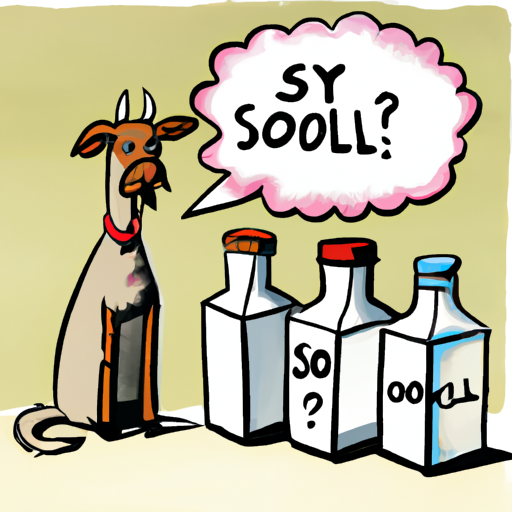Understanding Your Dog’s Digestive System
As a caregiver, it’s vital to keep in mind that your dog’s digestive system differs significantly from your own. While we humans can drink and digest various types of milk, your furry friend may struggle with some forms of this favorite beverage. Let’s dive deeper into the fascinating world of canine digestion.
Dogs naturally produce an enzyme called lactase, which helps them digest their mother’s milk as puppies. However, as they grow older, their production of this enzyme decreases, making it harder for them to digest lactose – the sugar found in milk. As a result, giving your mature dog a bowl of cow’s milk could lead to uncomfortable digestive issues.
The Trouble with Cow’s Milk
Now, you might wonder: “If puppies can handle milk, why can’t my adult dog?” It’s a fair question. The truth is, cow’s milk is rich in lactose, and without sufficient lactase to break it down, your dog might suffer from gas, diarrhea, and other unpleasant symptoms. Here’s a simple table to illustrate the lactose content in various types of milk:
| Type of Milk | Lactose Content |
|---|---|
| Cow’s Milk | High |
| Goat’s Milk | Moderate |
| Almond Milk | Low |
| Soy Milk | Low |
As you can see, cow’s milk is highest in lactose, and therefore the most likely to cause your dog discomfort.
Safer Milk Alternatives for Dogs
Luckily, there are a few alternatives that you can consider if you want to give your dog a milky treat.
- Goat’s Milk: This type of milk contains less lactose than cow’s milk, making it easier for dogs to digest. It’s also rich in beneficial nutrients.
- Almond Milk: Almond milk is a safe option for dogs in small quantities. It’s low in lactose but high in healthy fats. However, ensure it doesn’t contain Xylitol, a sweetener harmful to dogs.
- Soy Milk: Like almond milk, soy milk is low in lactose. However, it’s best to use unsweetened soy milk to avoid unnecessary sugars.
Ensure to introduce these milk alternatives gradually to check for any allergic reactions.
Commercially Available Dog Milk
In response to the growing demand for dog-friendly milk alternatives, some pet food manufacturers have developed special “dog milk” products. These are typically free of lactose and fortified with dog-friendly vitamins and minerals. They can be a great option if you want to give your dog a milky treat without the digestive upset.
Frequently Asked Questions (FAQs)
Q: Can I give my dog lactose-free cow’s milk?
A: Yes, lactose-free cow’s milk is a safe option for dogs. However, it’s always best to introduce it gradually and in small quantities.
Q: Is it harmful if my dog drinks a little bit of regular cow’s milk?
A: A small amount of cow’s milk is unlikely to harm your dog, unless they have a severe lactose intolerance.
Q: Can I give my puppy cow’s milk?
A: No, puppies should only drink their mother’s milk or a specially-formulated puppy milk replacer.
Being a caregiver to your furry friend means understanding their needs and how their bodies work. Remember, when it comes to your dog’s diet, it’s always best to consult with a veterinarian if you have any doubts or concerns.



